-
 Bitcoin
Bitcoin $117500
2.15% -
 Ethereum
Ethereum $3911
6.19% -
 XRP
XRP $3.316
10.79% -
 Tether USDt
Tether USDt $1.000
0.01% -
 BNB
BNB $787.2
2.24% -
 Solana
Solana $175.2
4.15% -
 USDC
USDC $0.9999
0.00% -
 Dogecoin
Dogecoin $0.2225
8.40% -
 TRON
TRON $0.3383
0.28% -
 Cardano
Cardano $0.7868
6.02% -
 Stellar
Stellar $0.4382
9.34% -
 Hyperliquid
Hyperliquid $40.92
7.56% -
 Sui
Sui $3.764
7.63% -
 Chainlink
Chainlink $18.48
10.66% -
 Bitcoin Cash
Bitcoin Cash $582.1
1.88% -
 Hedera
Hedera $0.2601
6.30% -
 Avalanche
Avalanche $23.33
4.94% -
 Ethena USDe
Ethena USDe $1.001
0.02% -
 Litecoin
Litecoin $122.3
2.04% -
 UNUS SED LEO
UNUS SED LEO $8.969
-0.27% -
 Toncoin
Toncoin $3.339
0.86% -
 Shiba Inu
Shiba Inu $0.00001287
4.30% -
 Uniswap
Uniswap $10.43
7.38% -
 Polkadot
Polkadot $3.861
5.08% -
 Dai
Dai $1.000
0.02% -
 Bitget Token
Bitget Token $4.513
3.41% -
 Monero
Monero $267.7
-6.18% -
 Cronos
Cronos $0.1499
4.14% -
 Pepe
Pepe $0.00001110
5.15% -
 Aave
Aave $284.9
8.28%
What is the operating logic of decentralized autonomous organizations (DAO)?
DAOs use blockchain and smart contracts for autonomous, transparent operations, enabling decentralized decision-making and resource management.
Mar 30, 2025 at 09:28 am
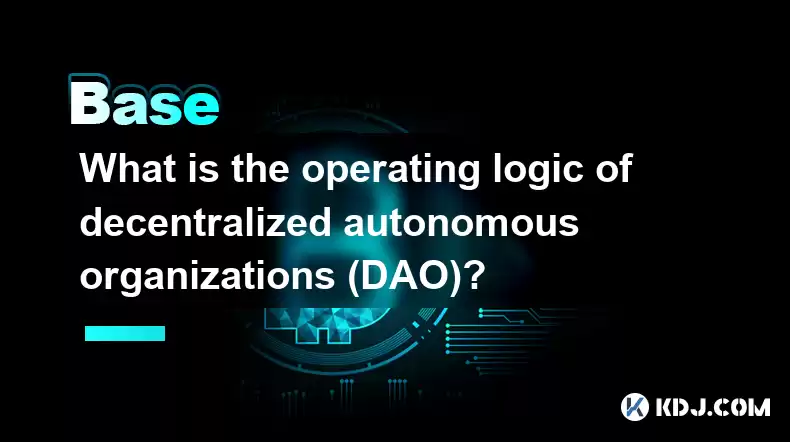
Understanding the Inner Workings of Decentralized Autonomous Organizations (DAOs)
Decentralized Autonomous Organizations (DAOs) represent a novel organizational structure leveraging blockchain technology to operate autonomously. Unlike traditional organizations with centralized control, DAOs function through a distributed network of participants governed by pre-defined rules encoded in smart contracts. These smart contracts, residing on a blockchain, automatically execute agreed-upon actions based on predefined conditions. This eliminates the need for intermediaries and central authorities, fostering transparency and immutability.
The core of a DAO's operation lies within its smart contracts. These self-executing contracts define the DAO's rules, membership criteria, voting mechanisms, and treasury management. All actions are recorded on the blockchain, creating a transparent and auditable history of the DAO's activities. This transparency is a key differentiator from traditional organizations, promoting accountability and trust among participants.
Membership in a DAO typically involves acquiring governance tokens. These tokens grant holders voting rights on proposals affecting the DAO's direction. The voting process is often weighted based on the number of tokens held, though various voting mechanisms exist, including quadratic voting, which aims to mitigate the influence of large token holders. The outcome of votes directly impacts the DAO's actions, as the smart contracts automatically execute the decisions made by the community.
Funding for DAO operations is typically managed through a treasury held in cryptocurrency. Members can propose projects or initiatives requiring funding, and the community votes on their allocation. Successful proposals receive funding from the DAO's treasury, automatically disbursed according to the smart contract's instructions. This decentralized treasury management system ensures fair and transparent allocation of resources.
The governance model of a DAO is crucial to its success. Different DAOs employ various governance models, ranging from simple majority voting to more complex systems incorporating weighted voting or delegated voting. The choice of governance model depends on the DAO's specific goals and the desired level of participation from its members. Choosing the right model is paramount to efficient and fair decision-making.
A significant aspect of DAO operations is the execution of proposals. Once a proposal passes a vote, the smart contract automatically executes the corresponding actions. This could involve funding a project, changing the DAO's parameters, or even deploying new smart contracts. The automation ensures that decisions are implemented efficiently and transparently, without the need for manual intervention.
Security is paramount in DAO operations. The security of the smart contracts directly impacts the security of the entire DAO. Vulnerabilities in the smart contracts could lead to exploitation and loss of funds. Rigorous auditing and security best practices are crucial to mitigate these risks and ensure the long-term stability of the DAO. Thorough audits by reputable firms are essential.
DAOs offer a unique approach to collective decision-making and resource management. They facilitate collaboration among individuals with shared interests, enabling them to collectively pursue common goals. The transparent and automated nature of their operations promotes trust and accountability, fostering a more democratic and efficient organizational structure.
The scalability of a DAO is a significant factor in its long-term viability. As a DAO grows, its operational complexity can increase, potentially hindering its efficiency. Effective scalability strategies are needed to manage the increasing number of members, proposals, and transactions. Efficient governance mechanisms are crucial for scalability.
The legal implications of DAOs are still evolving. The decentralized and autonomous nature of DAOs presents challenges to traditional legal frameworks. Clarity on legal issues surrounding liability, taxation, and regulatory compliance is essential for the continued growth and adoption of DAOs. Navigating the evolving legal landscape is critical.
The future of DAOs is likely to see increased innovation and adoption. As blockchain technology matures and the legal landscape clarifies, DAOs are expected to play a more significant role in various sectors. Their decentralized and transparent nature has the potential to revolutionize how organizations operate and interact. Continuous development and innovation are key to DAO success.
Common Questions and Answers about DAO Operating Logic
Q: How are decisions made in a DAO?
A: Decisions are made through a voting process governed by smart contracts. Members typically use governance tokens to vote on proposals. The outcome of the vote automatically triggers the execution of the decision through the smart contract.
Q: What are the benefits of using a DAO structure?
A: Benefits include transparency, immutability, automation, and decentralization. These features foster trust, accountability, and efficiency, eliminating the need for intermediaries.
Q: What are the risks associated with DAOs?
A: Risks include smart contract vulnerabilities, governance challenges, regulatory uncertainty, and potential for exploitation. Thorough audits and robust governance mechanisms are crucial to mitigate these risks.
Q: How is funding managed in a DAO?
A: Funding is typically managed through a DAO treasury held in cryptocurrency. Members propose projects, and the community votes on their allocation. Successful proposals receive funding automatically disbursed by smart contracts.
Q: What are governance tokens and their role in a DAO?
A: Governance tokens grant holders voting rights on proposals affecting the DAO. The number of tokens held often determines voting weight, though different voting mechanisms exist.
Q: How does the automation aspect of DAOs work?
A: Smart contracts automatically execute decisions made through the voting process. This automation eliminates the need for manual intervention and ensures efficient implementation of decisions.
Q: What are some examples of different DAO governance models?
A: Examples include simple majority voting, weighted voting based on token holdings, quadratic voting, and delegated voting where members delegate their voting rights to representatives.
Q: What is the role of smart contracts in DAO operations?
A: Smart contracts are the backbone of DAOs, encoding the rules, governing the voting process, managing the treasury, and automatically executing decisions. Their security is paramount.
Q: How can I participate in a DAO?
A: Participation typically involves acquiring governance tokens. The specific process varies depending on the DAO. Some DAOs may have membership requirements or onboarding processes.
Q: What is the future outlook for DAOs?
A: The future of DAOs is promising, with potential for wider adoption and innovation across various sectors. However, challenges remain regarding legal clarity, scalability, and security.
Disclaimer:info@kdj.com
The information provided is not trading advice. kdj.com does not assume any responsibility for any investments made based on the information provided in this article. Cryptocurrencies are highly volatile and it is highly recommended that you invest with caution after thorough research!
If you believe that the content used on this website infringes your copyright, please contact us immediately (info@kdj.com) and we will delete it promptly.
- Tron's Sell-Off Spurs Altcoin Shift: What's Next for TRX?
- 2025-08-08 08:30:12
- RUVI Presale: Is the Growth Potential Real?
- 2025-08-08 09:10:12
- Sleep Token's US Takeover: Thornhill Rides the 'Even In Arcadia' Wave
- 2025-08-08 08:30:12
- FTT Token's Wild Ride: Creditor Repayments vs. Market Drop - A New Yorker's Take
- 2025-08-08 07:10:12
- Floki Crypto Price Prediction: Riding the Robinhood Rocket or Just a Meme?
- 2025-08-08 07:15:12
- EigenLayer, Restaking, and Ethereum: Navigating the Hype and the Hazards
- 2025-08-08 06:30:12
Related knowledge
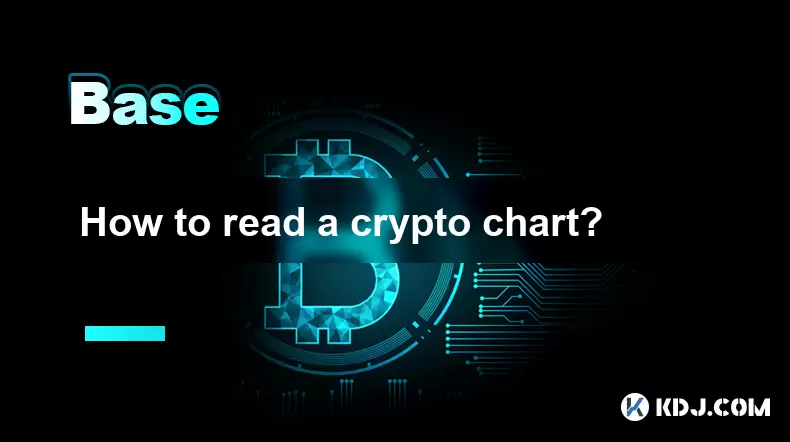
How to read a crypto chart?
Aug 08,2025 at 10:35am
Understanding the Basics of a Crypto ChartA crypto chart is a visual representation of the price movements of a cryptocurrency over time. These charts...
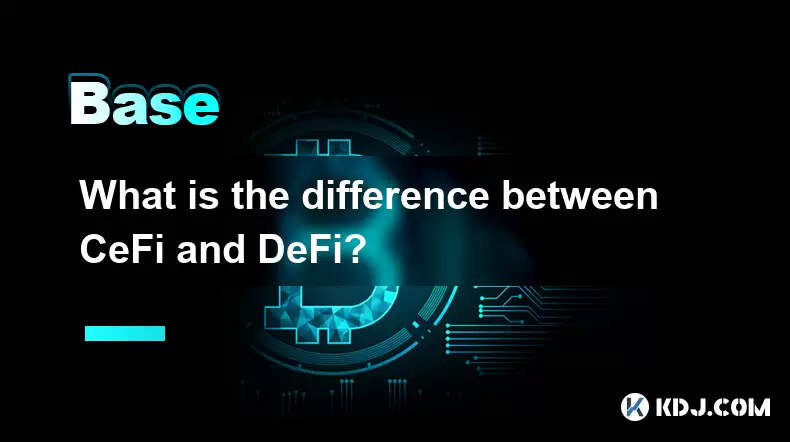
What is the difference between CeFi and DeFi?
Jul 22,2025 at 12:28am
Understanding CeFi and DeFiIn the world of cryptocurrency, CeFi (Centralized Finance) and DeFi (Decentralized Finance) represent two distinct financia...
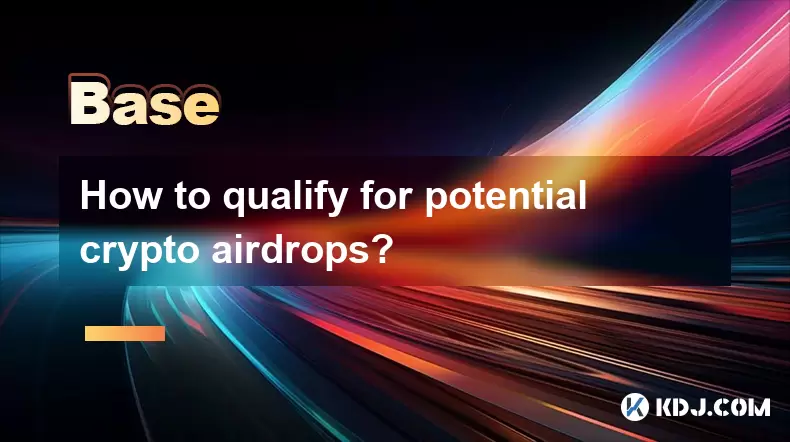
How to qualify for potential crypto airdrops?
Jul 23,2025 at 06:49am
Understanding What Crypto Airdrops AreCrypto airdrops refer to the distribution of free tokens or coins to a large number of wallet addresses, often u...
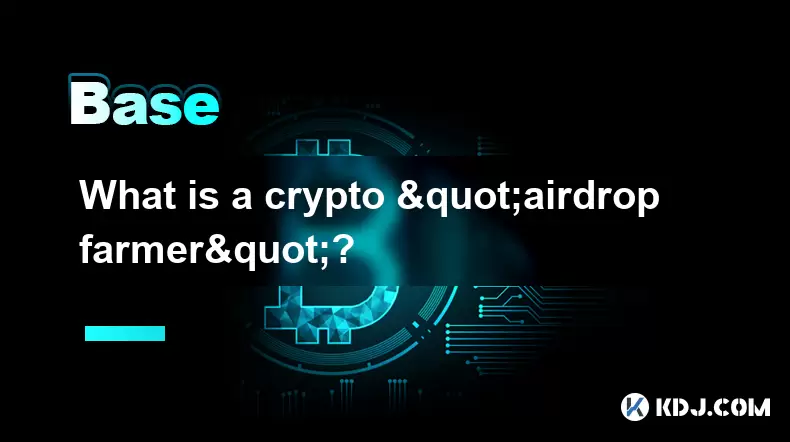
What is a crypto "airdrop farmer"?
Jul 24,2025 at 10:22pm
Understanding the Role of a Crypto 'Airdrop Farmer'A crypto 'airdrop farmer' refers to an individual who actively participates in cryptocurrency airdr...
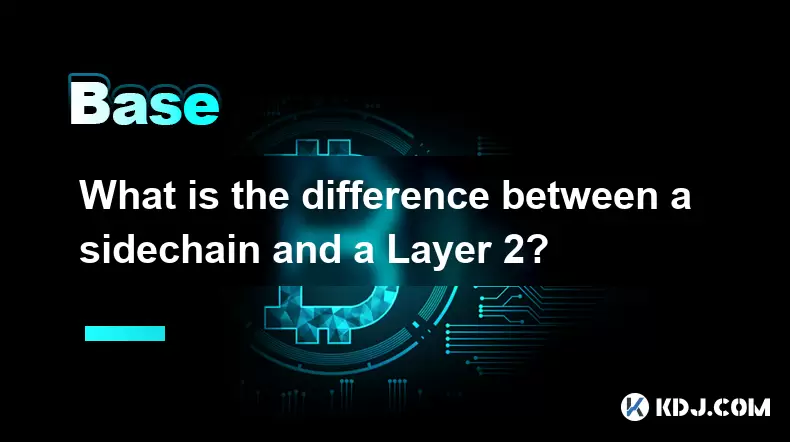
What is the difference between a sidechain and a Layer 2?
Jul 20,2025 at 11:35pm
Understanding the Concept of SidechainsA sidechain is a separate blockchain that runs parallel to the main blockchain, typically the mainnet of a cryp...
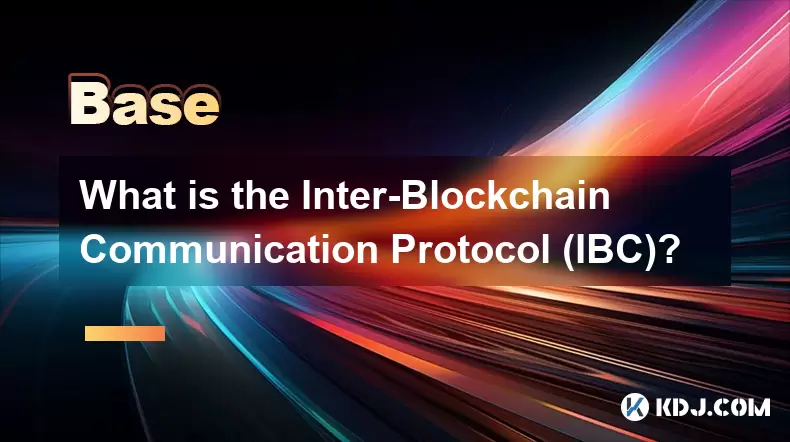
What is the Inter-Blockchain Communication Protocol (IBC)?
Jul 19,2025 at 10:43am
Understanding the Inter-Blockchain Communication Protocol (IBC)The Inter-Blockchain Communication Protocol (IBC) is a cross-chain communication protoc...

How to read a crypto chart?
Aug 08,2025 at 10:35am
Understanding the Basics of a Crypto ChartA crypto chart is a visual representation of the price movements of a cryptocurrency over time. These charts...

What is the difference between CeFi and DeFi?
Jul 22,2025 at 12:28am
Understanding CeFi and DeFiIn the world of cryptocurrency, CeFi (Centralized Finance) and DeFi (Decentralized Finance) represent two distinct financia...

How to qualify for potential crypto airdrops?
Jul 23,2025 at 06:49am
Understanding What Crypto Airdrops AreCrypto airdrops refer to the distribution of free tokens or coins to a large number of wallet addresses, often u...

What is a crypto "airdrop farmer"?
Jul 24,2025 at 10:22pm
Understanding the Role of a Crypto 'Airdrop Farmer'A crypto 'airdrop farmer' refers to an individual who actively participates in cryptocurrency airdr...

What is the difference between a sidechain and a Layer 2?
Jul 20,2025 at 11:35pm
Understanding the Concept of SidechainsA sidechain is a separate blockchain that runs parallel to the main blockchain, typically the mainnet of a cryp...

What is the Inter-Blockchain Communication Protocol (IBC)?
Jul 19,2025 at 10:43am
Understanding the Inter-Blockchain Communication Protocol (IBC)The Inter-Blockchain Communication Protocol (IBC) is a cross-chain communication protoc...
See all articles

























































































